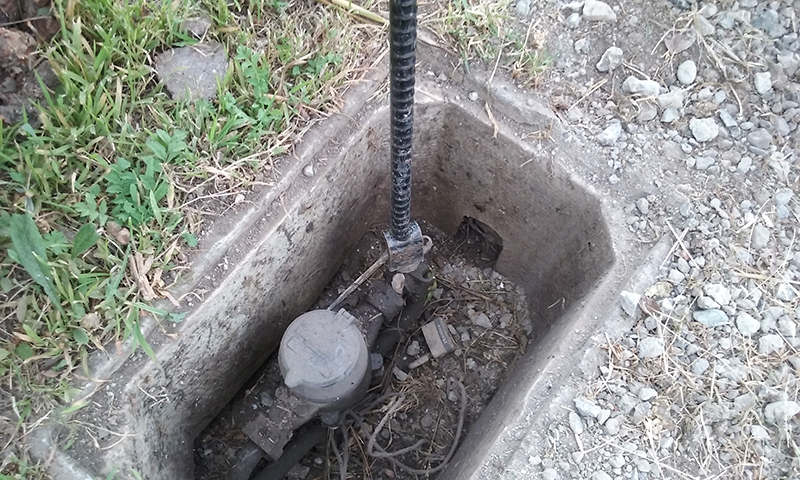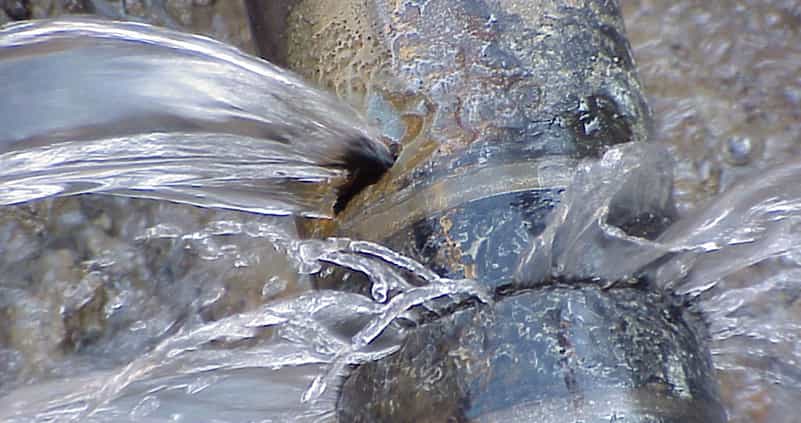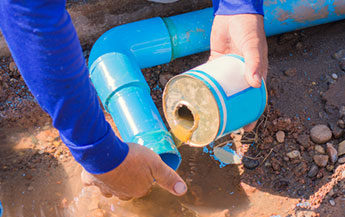We've unearthed this great article relating to Water Line Repair and Replacement below on the web and concluded it made sense to discuss it with you over here.

Residences get water from a main source which might be communal or personal. This water line is typically mounted underground with top notch water pipes that ought to last for a very long time. Nonetheless, as time proceeds the products made use of in the water lines become more at risk to ecological or inner problems that create them to weaken. For this reason, we can come across plumbing issues like leakages, discoloration, poor water stress, foul odors, etc. Problems with your water line need to not be taken with levity as they can advance to much more serious damage. Common water line issues include;
- Dripping shutoffs
- Mineral deposits
- Broken or broken pipelines
- Corroded pipelines
How To Know That Your Water Line is Harmed
Being underground, issues with your water line can go undetected for many years up until considerable damages has been done. Nonetheless, there are some pointers that you can look out for. Having the ability to identify these indicators implies that you can ask for specialist aid on schedule. Some of these include;
- Vibrating sounds in pipelines when no water is running
- Puddles on your grass when it has actually not rained
- Water leakage on the streets
- New cracks to your home's foundation
- Low water pressure
- Blemished or smelly water
- Mold and mildew, mold, as well as wetness at the lower degrees of your home
- These tips show a hidden problem that needs to be professionally addressed immediately.
Usual Sources Of Water Line Issues
Your water line being buried below ground subjects it to a lot of internal and also outside conditions. Any type of damages endured can be due to one or more of the adhering to; - Rust
- Pest damages
- Penetrations by tree roots
- Soil disturbances
- Inner mineral accumulation
- Deterioration
- Freezing as well as thawing and many others.
The Issue of Repair or Replace
Homeowners are typically faced with these 2 selections anytime there's a plumbing issue. It is needed for you to very carefully review the circumstance at hand as well as with respect to past as well as future signs make an informed selection. Discussing this with your plumber is highly advised. If the water line is old (concerning half a century old) you need to be taking into consideration changing it. This is due to the fact that such plumbing problems are associated with maturing ad are most likely to persist. If you have been fixing underground plumbing problems for some time, a complete substitute will certainly additionally save you a further migraine in the future. However, if the products are not old and also can easily be fixed for less than it will certainly require to change, choose the repair work option.
Trenchless Water Line Fixing
In contrast to old approaches which require full excavation of the waterline, the trenchless technique supplies the option of fixing damages within a much shorter time. It involves the setup of pipes of smaller sized size within the old ones. This dimension distinction as little or no effect on performance. This technique is beneficial due to the fact that it is non-invasive and also affordable. This technique makes it possible for fixing to be finished within a day or 2 with minimal disruption to your lawn.
BROKEN WATER PIPES: COST TO REPLACE & WAYS TO FIX A PIPE
A water pipe can break for several reasons depending on the environment you live in, type of pipe, and circumstances.
The most common cause of broken pipes is freezing. If you live in a colder climate, this could happen. When water freezes it increases in volume by 9% and the pressure in the pipes can go from 40 psi to 40,000 psi. Clearly, this could be detrimental to the pipes. Water freezing causes quick expansion, which puts stress on the pipes and could lead them to crack or weaken. When water thaws, it will leak out the cracks. Other changes in water pressure can also cause breakage. Another common cause of broken water pipes is age.
Depending on the material, water pipes can last anywhere from 70-100 years. But the older they get, the more susceptible they are to weakening and corroding. Older pipes coming into contact with another material could speed up the corrosion process as well. PVC pipes can become brittle with age, while copper is prone to corrosion and stress over time. Something that could also potentially break water pipes is when they move. They may move from construction or the house settling. Moving can stress the fixed pipe which may lead to a leak or burst pipe.
How Much Water Could Leak into Your House from a Broken Pipe?
The amount of water that leaks depend on how big the break in a pipe is. If it is just a minor crack, water will slowly leak out. This isn’t as serious as a full broken pipe, but it can still cause significant damage to your home. Burst pipes can leak up to 10 gallons of water per minute. The amount of water leaked also depends on what appliance is involved. The water line to your refrigerator can leak ½ to 1 gallon per minute depending on water pressure. One toilet supply line may leak 2-3 gallons a minute and a washing machine hose will leak up to 10-12 gallons per minute.
Turn the Water Off
Doing this first is imperative; everything else can wait. You need to deactivate the water supply to stop the flow of water and prevent more water from leaking into your home. Shutting off the water could potentially save you thousands in water damage repairs. Locating the water shutoff valve depends on the climate you live in. For colder climates, the valves are usually inside, such as in the basement. For houses in milder weather, the shutoff valves will probably be outside—either attached to an exterior wall or in an underground box with a removable lid.
Open A Faucet
The next thing to do is to open a faucet or turn on a sink. This will relieve any remaining water pressure in the pipes and ensure a full-shut down.
Get Rid of the Water
The quicker you get rid of the water, the less water damage and mold there could be. Use a mop and a shop vacuum to help get clean up the water. Use towels to dry everything the best you can.
Open Doors
If the cause of a broken pipe is freezing, turn on the heat and open up the cabinet, vanity, and closet doors. This will help the heat better get to the pipes under the sink and in the walls so that the water thaws faster.
Cut and Remove the Damaged Pipe
Once you have shut off the water and drained the damaged water pipe, you can begin to fix the issue. Cut out the damaged section of the pipe with a pipe cutter, ensuring that you also cut one inch extra on each side of the damage. Once you get rid of the broken part of the pipe, you may begin repairs.
Various Cost Factors of Broken Water Pipes
Many different factors go into the price of repair for a broken water pipe. The first thing that will affect the price is where the damaged pipe is located. If it is in a room where it is exposed or easily accessible from a dropped ceiling panel or wall panel, it will be significantly cheaper than a pipe requiring opening drywall to access. Breaking through concrete to get to a pipe will also prove costly.
Labor also affects the cost of fixing a damaged pipe. The price of labor depends on the area you live in and the plumbing company you pick. Plumbers may charge an hourly rate of anywhere from $45-$200 an hour. A big chunk of cost in repair services does go to labor, accessing the pipe, and making the repairs. If you’re looking at the average cost of repairs of $500, $300-$400 is usually for labor while the rest is for materials.
Water Line Repair & Replacement Services
Although a broken water pipe is a serious problem, leave the worrying to us. For over more than 40 years, WM Henderson has been providing dependable plumbing repair services to keep your home running smoothly. Our team offers trustworthy repair and installation services for malfunctioning water heaters, clogged drains, and inefficient sump pumps. We’ll take care of that broken pipe for you—or anything else you may need—efficiently and professionally. Contact us today and see what we can do for you!
https://www.wmhendersoninc.com/blog/broken-water-pipes-cost-to-replace-ways-to-fix-a-pipe/

Do you enjoy reading about Water Line Repair and Replacement ? Try to leave a remark directly below. We'd be glad to hear your thinking about this write-up. We are looking forward to see you back again in the future. I beg you take the time to promote this blog if you enjoyed it. I praise you for your time. Please come by our blog back soon.
Search-end for emergency plumbing.







